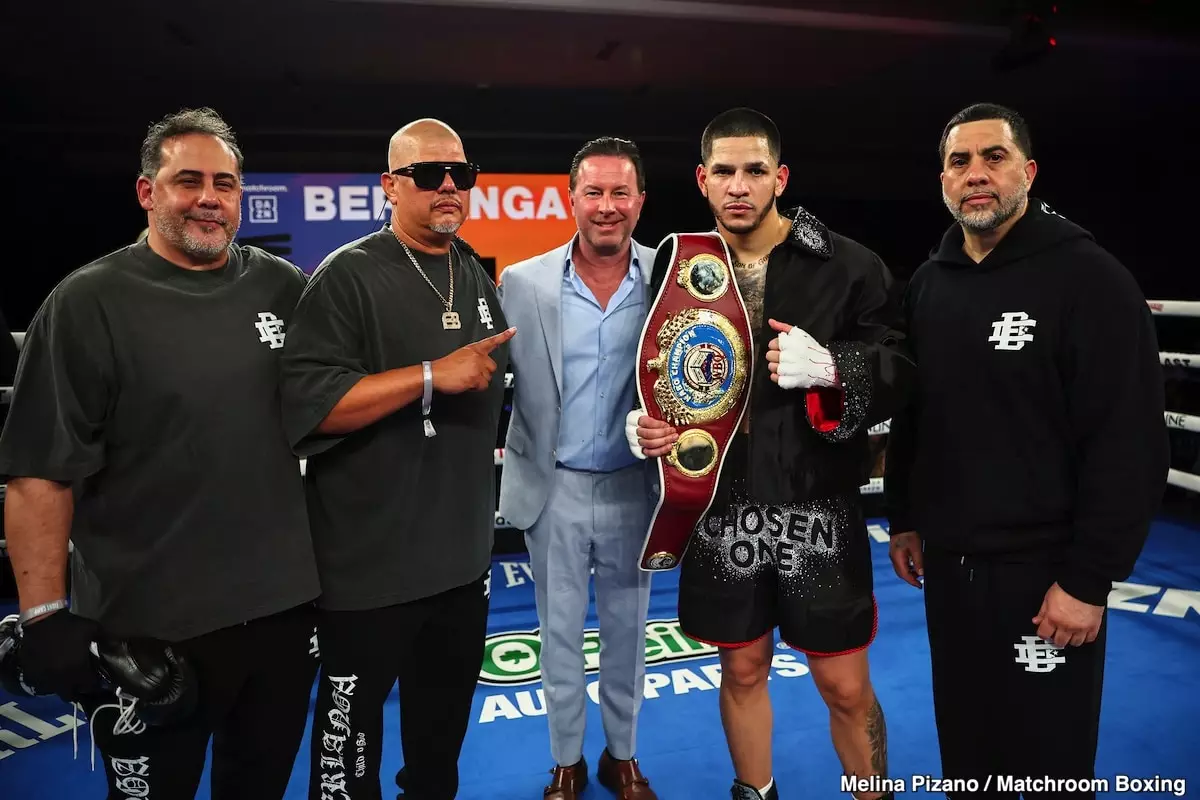On July 12 in New York City, boxing enthusiasts will be treated—or perhaps perplexed—by an unusual arrangement of bouts, as announced by Ring Magazine. The night features two co-headlining fights, with Edgar Berlanga facing Hamzah Sheeraz and Shakur Stevenson taking on William Zepeda. What stands out in this announcement is the peculiar decision to present Stevenson vs. Zepeda as the principal event during the fight week, only to have Berlanga vs. Sheeraz ultimately take center stage on fight night. This divergence not only muddles the typical fight promotion approach but also leaves fans grappling with an unclear hierarchy of importance within the event.
A Marketing Mirage
This strategy appears to be geared toward maximizing pay-per-view sales, especially as Stevenson and Zepeda are perceived as more engaging competitors in the eyes of American fans. However, resorting to such tactics may backfire. Berlanga and Sheeraz carry lackluster resumes, with neither having made their mark significantly in the boxing world. Critics often label them as commercial creations lacking genuine talent. By positioning the less appealing match as the climactic conclusion of the night, promoters may be inadvertently signaling to audiences how much they value the bouts themselves.
The Fighter Evaluation Dilemma
Adding to the intrigue is the contrasting skill levels of the two pairings. Berlanga holds a record of 23 wins, with 18 coming by way of knockout, while Sheeraz boasts an undefeated record of 21 wins and 1 draw. However, their past adversaries have frequently raised questions about how much weight these records truly carry. Neither fighter has faced particularly formidable opponents, leading many to conclude that they are more products of a promotional strategy than seasoned competitors. The decision to elevate this match seems more about creating a spectacle than showcasing elite boxing talent.
Fan Sentiment and Sincerity
The boxing community is not easily misled. Fans today are more discerning than ever, with a greater appetite for authentic talent and competitive integrity. Treating Stevenson vs. Zepeda as the marquee bout throughout the week might generate initial excitement, but promoting Berlanga vs. Sheeraz as the headliner may invite skepticism. Viewers may come to feel slighted if they purchase the card expecting to see premier athletes perform and find themselves instead watching fighters with limited capabilities clash in what appears to be a market-driven headliner, devoid of competitive intrigue.
A Compelling Conundrum
The promotion for July 12 begs the question: Are we witnessing a forward-thinking approach to boxing events or a perilous gamble on viewer perception? While understanding the motivations behind these promotional tactics may be straightforward, the long-term impact on fan engagement and loyalty can be unpredictable. True boxing lovers crave meaningful matchups over sensationalist promotions. What remains to be seen is whether this unconventional approach will foster genuine interest or further alienate a crowd that demands substance over smoke and mirrors.

